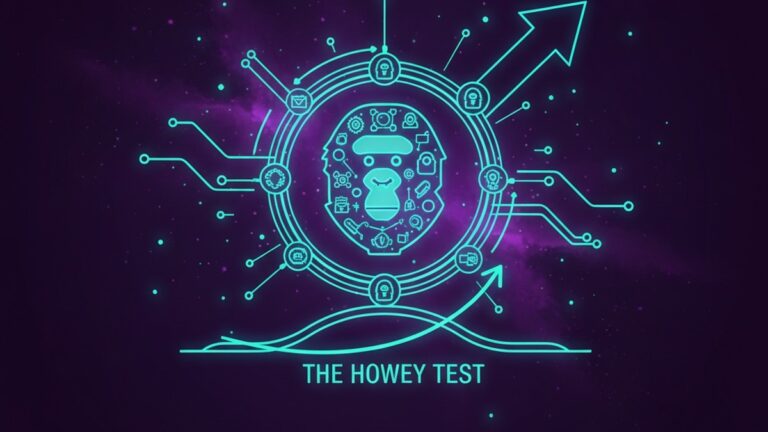In a significant legal victory for Yuga Labs, a federal judge has dismissed a lawsuit alleging that the company’s popular Bored Ape Yacht Club (BAYC) NFTs are unregistered securities. The court’s decision hinged on the plaintiffs’ inability to demonstrate that these NFTs meet the criteria of an investment contract as defined by the SEC’s Howey Test. This ruling could have far-reaching implications for the burgeoning NFT market and its regulation.
Understanding the Howey Test
To grasp the court’s decision, it’s crucial to understand the Howey Test. Established by the Supreme Court in 1946, the Howey Test determines if a transaction qualifies as an “investment contract” and thus a security, subject to U.S. securities laws. The test comprises three components: an investment of money, in a common enterprise, with an expectation of profits predominantly from the efforts of others. For the plaintiffs, proving that BAYC NFTs met these criteria was a formidable challenge.
Why the Lawsuit Was Dismissed
Judge Samantha Reynolds, presiding over the case, found that the plaintiffs did not convincingly demonstrate how the BAYC NFTs satisfy these three prongs. In her ruling, Judge Reynolds noted that while purchasers did invest money into acquiring these digital assets, the plaintiffs failed to show the existence of a “common enterprise” or a reasonable expectation of profits derived from the efforts of Yuga Labs.
The first prong was easily met, as buying an NFT involves a financial transaction. However, the second prong, “a common enterprise,” was where the plaintiffs faltered. The court found no evidence that Yuga Labs pooled the buyers’ funds or managed them jointly, a typical indicator of a common enterprise. Instead, the NFTs were sold to individual buyers who maintained control over their assets, much like purchasing a unique piece of art rather than a share in a company.
The third prong, the expectation of profits from others’ efforts, also failed to hold. While some NFT buyers might hope to resell their digital assets for a profit, the court noted that Yuga Labs does not actively promote or guarantee such returns. Unlike traditional securities, where the issuer plays a significant role in determining the value of the investment, NFT value is largely driven by market demand and individual buyer actions.
The Implications for the NFT Market
This ruling is a significant win for Yuga Labs and the broader NFT sector, which has been under increasing scrutiny from regulators. A decision in favor of the plaintiffs could have set a precedent, potentially classifying many NFTs as securities and imposing stringent regulatory requirements on creators and marketplaces. However, the dismissal underscores the complexities of applying traditional securities frameworks to novel digital assets.
The NFT community has welcomed the decision as a recognition of the unique nature of these digital tokens. “This is a positive outcome for innovation,” said Alex Thompson, a blockchain analyst. “It highlights the need for regulators to consider the distinct characteristics of NFTs rather than forcing them into existing regulatory boxes.”
Balancing Regulation and Innovation
While this ruling is a relief for NFT creators and enthusiasts, it doesn’t mean the end of regulatory challenges. The SEC has been vocal about its intention to regulate crypto assets more rigorously, including NFTs. Legal experts anticipate that the agency may revise its approach to NFTs, potentially developing new guidelines that better reflect their unique attributes.
Critics argue that the lack of regulation leaves consumers vulnerable to scams and market manipulation. They advocate for a balanced approach that protects investors without stifling innovation. “Regulation is essential for market stability and consumer protection,” said Maria Lopez, a financial regulation expert. “However, it must be crafted carefully to accommodate emerging technologies.”
Looking Ahead
As the NFT market continues to evolve, so too will the regulatory landscape. This case highlights the necessity for ongoing dialogue between regulators, industry leaders, and legal experts to ensure that any regulations are fair, effective, and conducive to growth.
For now, Yuga Labs and other NFT creators can breathe a sigh of relief, knowing that their digital collections don’t automatically fall under the securities category. However, the decision also serves as a reminder of the legal complexities surrounding NFTs and the importance of staying informed about regulatory developments.
Ultimately, this ruling is a step towards clarifying how laws apply to digital assets, but it’s just the beginning. As technology continues to blur the lines between art, investment, and ownership, courts and regulators will need to adapt to keep pace with innovation.

Steve Gregory is a lawyer in the United States who specializes in licensing for cryptocurrency companies and products. Steve began his career as an attorney in 2015 but made the switch to working in cryptocurrency full time shortly after joining the original team at Gemini Trust Company, an early cryptocurrency exchange based in New York City. Steve then joined CEX.io and was able to launch their regulated US-based cryptocurrency. Steve then went on to become the CEO at currency.com when he ran for four years and was able to lead currency.com to being fully acquired in 2025.


